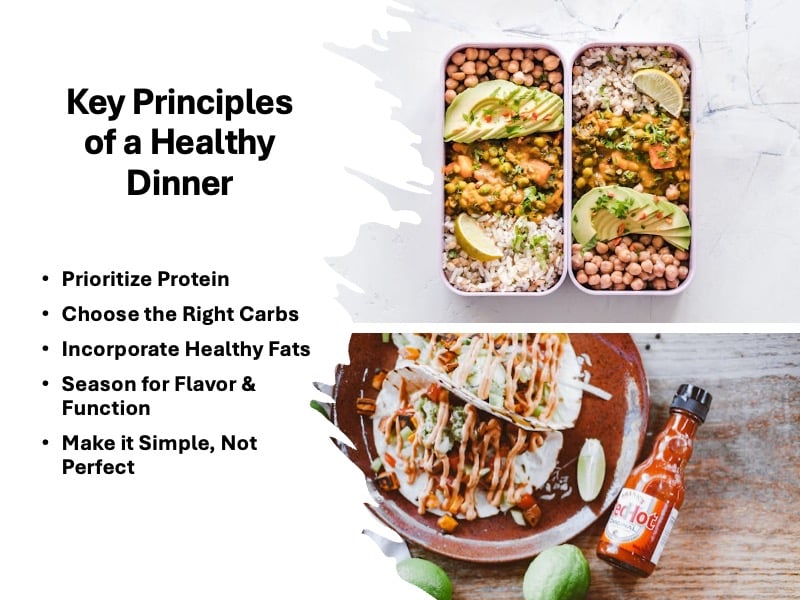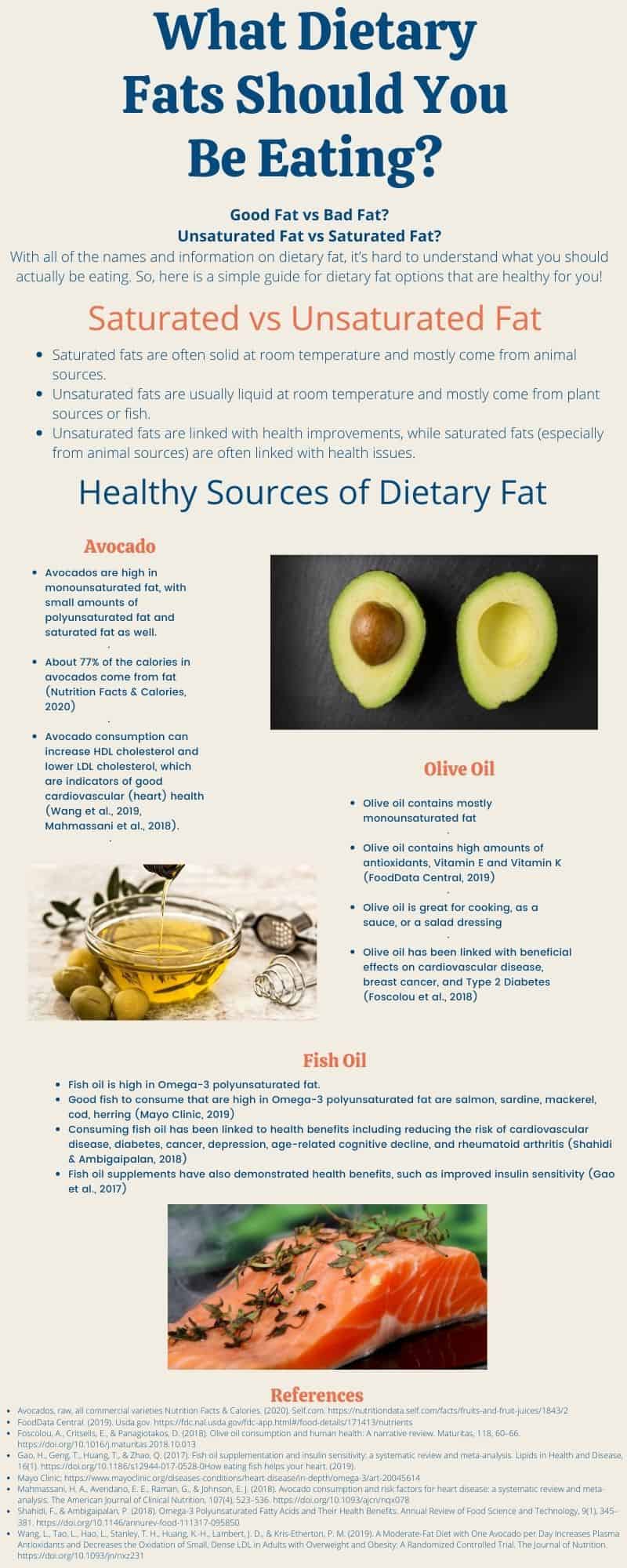Easy Healthy Dinner Ideas: How to Make a Healthy Dinner
Finding easy healthy dinner ideas can make a huge difference in your ability to build and sustain healthy eating habits, especially when life gets busy.
Dinner isn’t just the last meal of the day; it’s a chance to nourish your body, restore your energy, and prepare for a better tomorrow.
For athletes, parents, and anyone trying to eat better, consistently making smart choices at dinner helps regulate blood sugar, reduce late-night cravings, and improve sleep and recovery.
But the key is find easy healthy dinner ideas that are simple and repeatable, not overwhelming.
As a professional basketball player with a Master’s Degree in Nutrition Education, I’ve refined practical strategies that make healthy dinners easier to plan and more enjoyable to eat.
I’m fortunate that my wife is an excellent cook and prepares most of our meals, but with both of us leading exceptionally busy lives, having a variety of easy healthy dinner ideas on hand is essential for staying consistent with our nutrition and keeping our family healthy.
With a few foundational principles and flexible meal ideas, you can transform your nightly routine into a long-term habit that supports your goals and your health.
Why Healthy Dinners Matter
After a long, exhausting day, it’s completely natural to crave quick, comforting foods, like something salty, sweet, or ultra-convenient. Unfortunately, many of the most common choices are highly processed, nutrient-poor, and loaded with ingredients that do more harm than good.
But the truth is, the end of your day is when your body needs nourishment the most. This is your time to refuel, repair, and recharge.
Skipping out on real food or opting for fast-food fixes can leave you under-recovered, over-inflamed, and vulnerable to poor sleep.
Many processed and high-sugar meals interfere with your sleep by spiking blood sugar and disrupting melatonin production (St-Onge et al., 2023).
On the other hand, easy healthy dinner ideas can provide your body with the protein, fiber, antioxidants, and micronutrients it needs to wind down and rebuild overnight.
A well-balanced dinner doesn’t just support recovery, it promotes better sleep, appetite regulation, and long-term health.
That’s why prioritizing nutrient-dense, easy-to-make dinners is one of the most impactful healthy habits you can develop.
Key Principles of a Healthy Dinner

Making a healthy dinner doesn’t require perfection, it just takes a little structure.
After years of fueling my body for elite-level performance and helping others eat better at home, I’ve learned that consistency always beats complexity.
These foundational principles will help you build meals that are satisfying, nutrient-rich, and easy to prepare.
Whether you’re cooking for yourself or your family, following these simple guidelines will make healthy dinners feel effortless and sustainable, and help you stay on track after a long day.
Prioritize Protein
Protein is the foundation of all of my easy healthy dinner ideas.
It’s essential not only for muscle repair and recovery, especially after workouts, but also for immune health, hormone production, blood sugar balance, and keeping you full throughout the evening (Kreider & Campbell, 2009).
When you include a high-quality protein source in your dinner, you’re less likely to experience late-night cravings or blood sugar dips that disrupt sleep.
Protein also supports lean muscle maintenance, which is key for maintaining a healthy metabolism over time.
Some of the best options include:
- Grilled salmon or trout – rich in omega-3s and highly bioavailable protein
- Organic chicken breast or turkey thighs – lean, versatile, and easy to prep in batches
- Grass-fed beef or bison – great sources of iron, zinc, and creatine
- Lentils, chickpeas, or black beans – plant-based options that offer fiber and slow-digesting carbs
- Tofu or tempeh – excellent meat alternatives packed with amino acids and probiotics (in the case of tempeh)
Goal: Aim for 20-40g of protein at dinner, depending on your body size, activity level, and health goals.
Choose the Right Carbs
Carbohydrates often get a bad reputation, but when chosen wisely, they’re a vital part of a healthy dinner, especially for active individuals and athletes.
Complex carbohydrates help restore glycogen stores in your muscles and liver, which is essential for recovery, sustained energy, and improved performance the next day.
Unlike simple carbs that cause blood sugar spikes and crashes, complex carbs are slow-digesting and fiber-rich, providing steady energy while keeping you fuller for longer.
They also play a role in the production of serotonin, a neurotransmitter involved in sleep regulation and mood, making quality carbs at dinner particularly helpful for promoting restful sleep (Benton et al., 2022).
Some of the best healthy carb options include:
- Quinoa or brown rice – high in magnesium and naturally gluten-free
- Sweet potatoes or red potatoes – rich in beta-carotene and potassium
- Farro, bulgur, or barley – excellent sources of fiber and B vitamins
- Legumes like lentils, black beans, or kidney beans – packed with plant-based protein and resistant starch that supports gut health
Key Point: If you’ve trained hard or been physically active, don’t be afraid of carbs in the evening because this is when your body can best use them to recover and refuel.
Some strategies, like intermittent fasting with carb backloading, actually preferentially delay carb intake until the evening to maximize benefits.
You should adjust your portion size based on your energy output:
- Higher-carb portions on intense training or busy days
- Smaller portions on rest days or when aiming for weight loss
Moreover, vegetables aren’t just side dishes, they’re the cornerstone of a nutrient-dense meal.
Vibrant, colorful vegetables are loaded with fiber, vitamins, minerals, antioxidants, and phytonutrients that support nearly every system in the body.
Eating a variety of vegetables helps reduce inflammation, improve digestion, support a healthy gut microbiome, and improve recovery, which is especially important after a long day of physical or mental stress.
The fiber in vegetables slows digestion, promotes satiety, and helps regulate blood sugar, which is crucial for avoiding late-night energy crashes or cravings (Alahmari, 2024).
Cooking vegetables with healthy fats (like olive oil or avocado oil) also increases the absorption of fat-soluble vitamins such as A, D, E, and K.
Easy vegetable ideas for healthy dinners include:
- Roasted broccoli, Brussels sprouts, or carrots – simple to prep and rich in fiber and antioxidants
- Stir-fried peppers, onions, mushrooms – adds flavor, texture, and immune-supporting compounds
- Mixed greens or arugula salad – quick to throw together and packed with phytonutrients
- Steamed spinach, kale, or bok choy – high in iron, magnesium, and anti-inflammatory compounds
Goal: Try to fill at least half your plate with vegetables, and aim to include 2-3 different colors to maximize the diversity of nutrients and health benefits. Rotating your veggies weekly also supports gut health by feeding different strains of beneficial bacteria.
Incorporate Healthy Fats
Healthy dietary fats are a critical but often underappreciated part of a balanced dinner.
They support hormone production, brain health, and cell membrane function while also improving the absorption of fat-soluble vitamins like A, D, E, and K (Meijaard et al., 2022).
Including quality fats in your dinner can make your meals more filling and help you avoid unnecessary snacking later in the evening.
Fats also slow down digestion, which can help regulate blood sugar and create a more sustained release of energy throughout the night, which is important for recovery, metabolic balance, and even quality sleep.

Top healthy fat choices include:
- Extra virgin olive oil – rich in monounsaturated fats and antioxidants; ideal for cooking or finishing vegetables
- Avocados or guacamole – packed with fiber, potassium, and anti-inflammatory compounds
- Fatty fish like salmon, mackerel, or sardines – excellent sources of omega-3 fatty acids (EPA and DHA), which reduce inflammation, support cardiovascular health, improve sleep quality, and promote brain function (Sejbuk et al., 2022).
- Chia seeds or ground flaxseeds – great plant-based sources of omega-3s and lignans that support heart and gut health
- Nuts and nut butters (in moderation) – provide healthy fats, magnesium, and plant protein, but should be portion-controlled to avoid excess calories
A few easy ways to add healthy fats include:
- Drizzle olive oil on roasted vegetables or grain bowls
- Add half an avocado to a salad or wrap
- Sprinkle flax or chia seeds into cooked grains, soups, or stir-fries
- Use a spoonful of nut butter in a savory sauce or as a topping for roasted root veggies
Season for Flavor & Function
Herbs and spices aren’t just flavor enhancers, they’re powerful nutritional allies that can elevate the health benefits of any meal.
Seasoning your food with natural herbs and spices allows you to reduce your reliance on high-sodium sauces, processed dressings, or added sugars without sacrificing taste (Peterson et al., 2024).
Many herbs and spices have been used for centuries in traditional medicine for their anti-inflammatory, antioxidant, antimicrobial, and digestive-supporting properties.
Regularly incorporating them into your meals can help improve digestion, strengthen immune defenses, and support recovery from physical and mental stress.
Examples of flavorful and functional additions include:
- Turmeric and black pepper – Turmeric contains curcumin, a potent anti-inflammatory compound. Pairing it with black pepper boosts absorption significantly due to piperine, a compound in pepper that enhances curcumin’s bioavailability. Try it in roasted vegetables, rice dishes, or soups.
- Ginger and garlic – Ginger soothes digestion, combats nausea, and has anti-inflammatory effects. Garlic supports immune function and helps regulate blood pressure. Both are ideal in stir-fries, marinades, or sautés.
- Basil, oregano, and rosemary – These herbs are rich in antioxidants and phytonutrients. Rosemary may help improve circulation and reduce oxidative stress, while basil and oregano support immune and gut health. Use them fresh or dried in sauces, roasted dishes, or grain bowls.
Key Points: Experimenting with different herbs and spices not only makes healthy meals more exciting but also encourages you to cook more at home, which is one of the most reliable ways to maintain healthy eating habits long-term.
Make it Simple, Not Perfect
You don’t need to cook a restaurant-worthy meal every night to eat well. In fact, the healthiest dinners are often the simplest ones and the ones you can make quickly, consistently, and with minimal stress.
When you’re tired or pressed for time, relying on a repeatable structure takes the guesswork out of cooking and helps you stay on track with your nutrition goals.
Instead of overthinking it, follow this balanced dinner formula:
Protein + 1–2 veggies + complex carb + healthy fat + seasoning
This basic framework ensures you’re hitting your key nutrient needs while still leaving plenty of room for creativity and variety.
For example: Grilled chicken, roasted sweet potatoes, and steamed broccoli with a drizzle of olive oil, garlic, and lemon.
Whether you’re feeding yourself or your whole family, having a few go-to combinations like this makes healthy eating feel automatic, not overwhelming.
My wife and I have been loving the meals from the food delivery company Home Chef lately.
While they’re a bit on the expensive side and might not be the best fit for those on a tight budget, we’ve found them incredibly helpful during our busiest weeks.
The recipes are simple to follow, require minimal prep time, and incorporate a variety of healthy ingredients and flavorful spices, making it easy to stick to our nutrition goals without spending hours in the kitchen.
Meal Prep Tips to Make Healthy Dinners Easier
One of the best kitchen hacks for sticking with healthy eating habits is simply making dinner easier to prepare.
When meals feel like a chore, you’re more likely to grab takeout or skip cooking altogether.
But with a little planning, healthy dinners can be just as convenient as they are nutritious.
Here are a few strategies my wife and I rely on every week:
- Batch-cook proteins and grains early in the week—grill or roast several chicken breasts, cook a big pot of quinoa or brown rice, and store them in airtight containers for quick assembly later.
- Keep pre-washed greens and frozen veggies on hand for easy stir-fries, sheet pan dinners, or simple side salads—no washing or chopping required.
- Use sheet pan or one-pot meals to cut down on cleanup time while still delivering balanced, satisfying meals. These are perfect for busy weeknights.
- Have go-to sauces like tahini-lemon, hummus, pesto, or Greek yogurt blends to quickly add flavor and nutrition to grain bowls, wraps, or roasted vegetables.
One of our favorite go-to meal prep options is making a big batch of taco meat at the start of the week.
We use a mix of 2–3 pounds of grass-fed, organic ground beef combined with 3–4 cans of beans, lentils, and chickpeas for extra fiber, plant-based protein, and texture.
We also cook a few cups of rice and store everything in the fridge so we can quickly make tacos, burritos, or taco bowls whenever we need a fast, nourishing meal.
To make assembly even easier, we pre-chop onions, lettuce, and tomatoes, and we always have guacamole or mashed avocado on hand for a quick flavor and nutrient boost.
It’s one of the simplest systems we’ve found for staying on track with healthy eating during busy weeks with minimal cooking and maximum flexibility.
Key Points: These are some of the best kitchen hacks we use in our home to simplify healthy eating and stay consistent because the easier it is to put a meal together, the more likely you are to follow through, even after a long day.
Healthy Dinner Ideas to Try Tonight
Here are some well-balanced, easy healthy dinner ideas based on the healthy dinner formula, each combining lean protein, colorful vegetables, healthy fats, and complex carbs to keep you nourished and satisfied:
- Lemon herb salmon, wild rice, and sautéed spinach – High in omega-3s, fiber, and antioxidants for heart and brain health.
- Lentil stew with carrots, onions, and a drizzle of olive oil – A comforting, high-fiber, plant-based option perfect for batch cooking.
- Grass-fed beef tacos with avocado, cabbage slaw, and corn tortillas – Flavorful and fast, with healthy fats and a solid protein-carb balance.
- Stir-fry with tofu, broccoli, bell peppers, and quinoa – A vegan-friendly option rich in plant protein, fiber, and vitamins.
- Baked chicken thighs, roasted carrots, and mashed sweet potatoes – Hearty, satisfying, and easy to prepare in one oven session.
- Turkey burger bowls with brown rice, shredded lettuce, pickled onions, and tahini dressing – A fun way to skip the bun while keeping all the flavor.
- Shrimp and veggie stir-fry with jasmine rice and sesame oil – Quick-cooking and high in lean protein, perfect for weeknights.
- Stuffed bell peppers with ground beef, quinoa, black beans, and tomato sauce – A great meal prep option that stores well and packs in fiber.
- Grilled chicken and farro salad with arugula, cherry tomatoes, feta, and olive oil – Light yet filling, and ideal for warmer nights.
- Sweet potato and black bean tacos with avocado crema and chopped greens – A vegetarian favorite that’s budget-friendly and full of nutrients.
- Pan-seared trout with garlicky green beans and roasted red potatoes – Quick to cook and packed with flavor and healthy fats.
Mix and match these easy healthy dinner ideas with your favorite herbs, spices, and sauces to keep meals exciting while still aligned with your nutrition goals.
Final Thoughts: How to Use Easy Healthy Dinner Ideas to Get Healthier Every Day

Healthy eating doesn’t have to be restrictive, time-consuming, or overwhelming.
With a few easy healthy dinner ideas and a repeatable meal structure, you can transform your evenings into an opportunity to nourish your body, restore energy, and build long-term habits that truly support your health.
The key is consistency, not perfection.
Whether you’re batch-prepping taco meat, throwing together a quick grain bowl, or using a meal kit like Home Chef, making dinner easier increases the likelihood you’ll stick to your nutrition goals—even on your busiest days.
By focusing on real, whole foods and balancing protein, fiber-rich carbs, healthy fats, and vibrant vegetables, you’ll naturally build better eating patterns.
Over time, these small, sustainable choices at dinner become the foundation for a healthier lifestyle, one satisfying meal at a time.



